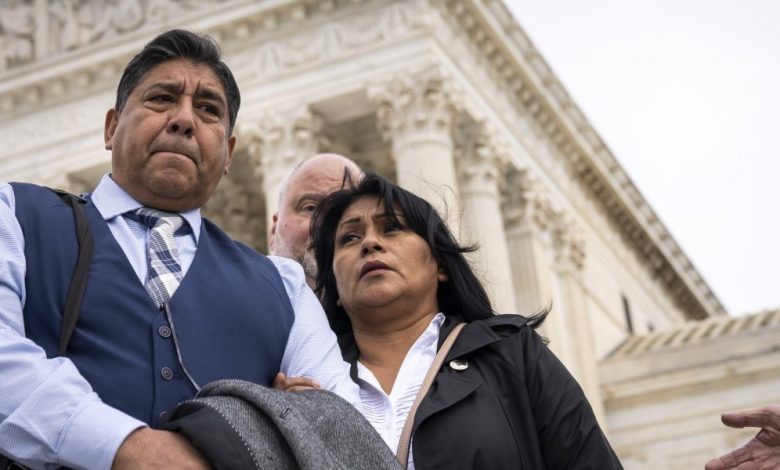The Supreme Court is skeptical of holding Google liable for terrorist attacks and shattering key laws that underpin the internet as we know it

In its first case on federal law that helped create the modern internet, it seemed unlikely the Supreme Court on Tuesday would side with a family seeking to hold Google liable for their daughter’s death in a terrorist attack.
In two-and-a-half hours of arguments, the judges appeared concerned to turn the internet inside out in their interpretation of a 1996 statute, Section 230 of the Communications Decency Act, which protects Google, Twitter, Facebook and other companies from lawsuits over content posted on the websites of others.
“We really don’t know anything about these things. These aren’t the nine greatest experts on the internet,” Judge Elena Kagan said of herself and her colleagues, some of whom smiled at the description.
Congress, not the court, should make necessary changes to a law passed early in the internet age, Kagan said.
Judge Brett Kavanaugh, one of six Conservatives, agreed with his Liberal colleague in a case that seemed to cross ideological lines.
“Isn’t it better,” Kavanaugh asked, to leave things as they are and “put the onus on Congress to change that?”
The court case stems from the death of American college student Nohemi Gonzalez in a 2015 terrorist attack in Paris. Members of her family were in the courtroom to hear arguments over whether they can sue Google-owned YouTube for helping Islamic State spread its message and attract new recruits, in violation of anti-terrorism law.
The judges used a variety of examples to examine what YouTube does when it recommends videos to viewers, whether the content is terrorist or cat lover-produced. Chief Justice John Roberts suggested what YouTube is doing isn’t “suggesting anything specific to the person who made the request,” just a “version of the 21 the person might want to watch.”
Judge Clarence Thomas asked whether YouTube uses the same algorithm to recommend rice pilaf recipes and terrorist content. Yes, he was told.
Lower courts have interpreted Section 230 broadly to protect the industry, which the companies and their allies say has fueled the Internet’s meteoric growth and encouraged the removal of harmful content.
But critics argue that the companies haven’t done nearly enough and that the law shouldn’t block lawsuits over the recommendations generated by computer algorithms, which direct viewers to more material that interests them and keep them online longer.
Any reduction in their immunity could have dramatic consequences that could affect every corner of the internet as websites use algorithms to sort and filter a mountain of data.
Kagan noted that “every time someone looks at something on the internet, there’s an algorithm involved,” whether it’s a Google search, YouTube, or Twitter. She asked Gonzalez family attorney Eric Schnapper if agreeing to him would ultimately render Section 230 meaningless.
Lower courts have sided with Google.
A related case, scheduled to be heard on Wednesday, concerns a terrorist attack at a nightclub in Istanbul in 2017 that killed 39 people and sparked a lawsuit against Twitter, Facebook and Google.
Several judges suggested Wednesday’s arguments could offer a way to avoid the difficult questions in Tuesday’s case. Judge Neil Gorsuch, who the court said was “a little shaky” and participated in telephone arguments, suggested the judges remit the case to a lower court.
Separate lawsuits challenging the social media laws passed by Republicans in Florida and Texas are pending in the High Court, but they won’t be heard until the fall and decisions are unlikely to come until the first half of 2024.
Learn how to navigate and build trust in your organization with The Trust Factor, a weekly newsletter exploring what leaders need to succeed. Login here.



